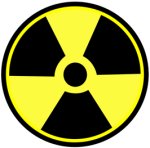Fukushima may have disappeared from mainstream media headlines for the most part, but its radioactive shadow still lingers on in the minds of many Americans close to one year after the event.
On March 11, 2011, radioactive materials began spewing from the Fukushima I Nuclear Power Plant in Japan following a massive earthquake and tsunami that damaged the facility.
Today, a 20 kilometre exclusion zone still exists around the nuclear disaster site – an area equivalent to the entire city of Adelaide, all of its inner and most of its outer suburbs. The Fukushima disaster was and continues to be the worst nuclear incident since the Chernobyl crisis in 1986. More than 25 years on, a 30 kilometre exclusion zone still exists around the Chernobyl site.
Fukushima saw a backlash against nuclear energy around the world – an understandable knee-jerk reaction to the horrific event. However, even 12 months on, the fear of nuclear power among many United States citizens hasn’t dissipated.
A survey conducted for the Civil Society Institute (CSI) of just over 1,000 Americans has found 57% are less supportive of expanding nuclear power in the United States than they were before the crisis.
Other key findings include:
– 77% support “a shift of federal loan-guarantee support for energy away from nuclear reactors” in favor of wind and solar power.
– 61% are now less supportive of nuclear power.
– 65% would oppose the construction of a nuclear reactor within 75km of their home.
– 77% of respondents are now more supportive than they were a year ago of the use of clean, renewable resources such as solar energy.
Commenting on the findings, Peter Bradford, a former member of the United States Nuclear Regulatory Commission and currently adjunct professor at Vermont Law School on Nuclear Power and Public Policy, said public skepticism of the magnitude revealed in the survey is a near “fatal flaw” for the nuclear energy sector.
“The nuclear industry has spent millions on polls telling the public how much the public longs for nuclear power. Such polls never ask real world questions linking new reactors to rate increases or to accident risk. Fukushima has made the links to risk much clearer in the public mind. This poll makes the consequences of that linkage clear.”
According to the Civil Society Institute survey report, issues not helping the nuclear cause in the USA include a number of incidents in 2011 and this year where nuclear reactors operating within the nation needing to be shut due such factors as natural disasters, equipment failure and radioactive leaks.
One in three US citizens live within a 50-mile radius of a nuclear reactor – which is the same evacuation area U.S. nuclear officials recommended for Americans living near Fukushima. The CSI survey also found 52 percent of Americans living within 50 miles of a nuclear reactor still do not know what to do in the event of nuclear reactor emergency – a similar result to a nuclear survey performed last year.
The full Civil Society Institute survey report can be viewed here.
Related:












































